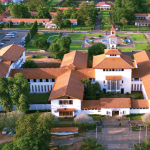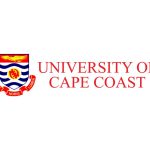As a Ghanaian student pursuing higher education at a university in Ghana, exams are an…
Unraveling the Rich History of University of Ghana, Legon: A Guide for Ghanaian Students
Introduction:
As Ghanaian students currently pursuing higher education in Ghanaian universities, it is essential to understand the rich history of the University of Ghana, Legon. Established as the oldest and one of the most prestigious universities in Ghana, it holds a significant place in the nation’s educational landscape. In this blog post, geared towards Ghanaian students, we will delve into the extensive history of the University of Ghana, Legon, highlighting its origin, founders, notable alumni, and its impact on Ghanaian society. Let’s embark on this enlightening journey!
1. The Origin of University of Ghana, Legon:
The University of Ghana, Legon, was founded in 1948, initially as the University College of the Gold Coast. It was a constituent college of the University of London until 1961 when it gained full university status as the University of Ghana. The university’s establishment aimed to provide tertiary education for Ghanaians, fostering intellectual growth and shaping the nation’s future leaders.
2. Founders and Visionaries:
The visionaries behind the establishment of the University of Ghana, Legon, were prominent figures in Ghana’s history. Dr. James Emman Kwegyir Aggrey, an esteemed educator and missionary, played a significant role in advocating for higher education opportunities for Africans. Dr. Alexander G. Fraser, the first Principal of the University College of the Gold Coast, worked tirelessly to shape the institution’s direction and curriculum.
3. Notable Alumni and Their Contributions:
The University of Ghana, Legon, has produced numerous notable alumni who have made significant contributions to various fields. Some prominent examples include:
– Kofi Annan: The late Kofi Annan, a former Secretary-General of the United Nations, was an alumnus of the University of Ghana. He received the Nobel Peace Prize in 2001 for his efforts in promoting peace and diplomacy on a global scale.
– John Agyekum Kufuor: Former President John Agyekum Kufuor, who served as Ghana’s President from 2001 to 2009, is an alumnus of the University of Ghana. His tenure witnessed significant socio-economic advancements in the country.
– Kwame Anthony Appiah: Renowned philosopher and cultural theorist Kwame Anthony Appiah, known for his works on identity and ethics, is an alumnus of the University of Ghana. He has contributed extensively to intellectual discourse on a global scale.
4. Academic Excellence and Research:
The University of Ghana, Legon, has established itself as a center of academic excellence and research. The institution boasts a wide range of faculties and departments, offering comprehensive programs in various fields. Its commitment to research and innovation has resulted in groundbreaking studies and advancements in areas such as agriculture, health sciences, social sciences, and technology.
5. Cultural and Intellectual Hub:
Beyond academics, the University of Ghana, Legon, serves as a vibrant cultural and intellectual hub. The campus is home to numerous student organizations, clubs, and societies, fostering creativity, critical thinking, and cultural exchange. The university hosts events, conferences, and seminars that attract local and international scholars, contributing to intellectual discourse and societal development.
6. Community Engagement and Social Impact:
The University of Ghana, Legon, recognizes the importance of community engagement and social impact. Through outreach programs, community service initiatives, and collaborations with local organizations, the university actively contributes to the development of surrounding communities. It promotes sustainable development, entrepreneurship, and social responsibility among its students, fostering a spirit of active citizenship.
7. Legacy and National Development:
The University of Ghana, Legon, has left an indelible mark on Ghanaian society. Its commitment to academic excellence, research, and community engagement has shaped the nation’s intellectual landscape and contributed to national development. The institution continues to produce graduates who excel in their respective fields, driving progress and positively impacting various sectors of Ghanaian society.
Conclusion:
The University of Ghana, Legon, stands as a testament to Ghana’s commitment to quality higher education, intellectual growth, and national development. Its origin, visionary founders, notable alumni, academic excellence, cultural significance, and social impact make it a beacon of educational achievement in Ghana. As Ghanaian students, understanding and appreciating the rich history of the University of Ghana, Legon, will undoubtedly inspire and motivate you as you navigate your academic journey within the institution.







